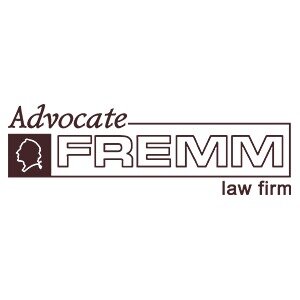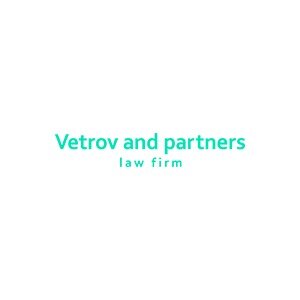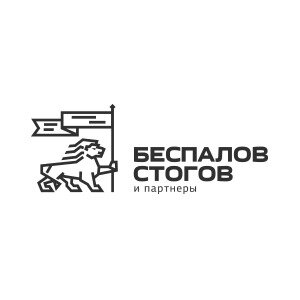Best Water Law Lawyers in Russia
Share your needs with us, get contacted by law firms.
Free. Takes 2 min.
Or refine your search by selecting a city:
List of the best lawyers in Russia
About Water Law in Russia
Water Law in Russia refers to a specific branch of environmental and property law that governs the use, management, and protection of water resources across the country. The main legal framework is set by the Water Code of the Russian Federation, which establishes the principles for accessing, owning, and utilizing water bodies such as rivers, lakes, reservoirs, and groundwater. These laws aim to balance the interests of the state, individuals, and legal entities while ensuring the sustainability and environmental safety of Russia’s vast water resources.
Why You May Need a Lawyer
Navigating Water Law in Russia can be complex due to overlapping regulations, technical requirements, and bureaucratic processes. You might need a lawyer in situations such as:
- Obtaining permits or licenses for using water resources for industrial, agricultural, or private purposes
- Resolving disputes concerning water rights or water body boundaries
- Compliance with environmental regulations during construction or land development near water bodies
- Addressing fines or sanctions for violations of water use rules
- Negotiating agreements for water supply or wastewater disposal
- Participating in public hearings or legal actions involving water resource allocation
Local Laws Overview
The core of Water Law in Russia is the Water Code, which categorizes water bodies as being under federal, regional, or private control. Key aspects include:
- Public Ownership - Major water bodies, such as national rivers and lakes, are generally public property and managed by governmental authorities.
- Permitting and Licensing - Water use for industrial and agricultural activities typically requires formal authorization and compliance with usage limits.
- Land-Adjoining Water Bodies - Landowners adjoining rivers or lakes have specific responsibilities and restrictions around water use and shoreline protection.
- Environmental Protection - Activities that may impact water quality or conservation are subject to strict monitoring and approval processes.
- Water Use Rights - There are established procedures for granting, transferring, or terminating rights to use water resources.
- Dispute Resolution - Disputes over water use, contamination, or boundary issues are handled by administrative and judicial authorities.
Frequently Asked Questions
What activities require a water use permit in Russia?
Activities such as water intake for industrial, farming, or municipal purposes, as well as discharging treated wastewater, typically require a permit from the relevant authorities.
Can private individuals own lakes or rivers in Russia?
Lakes and rivers are generally classified as state-owned and cannot be privately owned, although private individuals or companies may receive rights to use water resources for certain purposes.
What are the main responsibilities of landowners adjacent to water bodies?
Landowners must protect shorelines, prevent pollution, and comply with regulations on land use within protected zones near water bodies.
How do I apply for a water usage license?
Applications are filed with the relevant executive authority, accompanied by technical documentation and environmental assessments. The process can be complex and time-consuming.
What penalties exist for unauthorized water use?
Penalties include fines, suspension of operations, and in severe cases, criminal liability for environmental harm or repeated violations.
Are there special rules for using water in agricultural activities?
Yes, agricultural users must follow specific water withdrawal norms and may be required to construct protective facilities or implement water-saving technologies.
How are disputes over water use or boundaries resolved?
Disputes can be resolved through administrative procedures, mediation, or litigation before courts or arbitration panels.
Can water rights be transferred or inherited?
Water use rights can typically be transferred or inherited under certain conditions and with approval from the appropriate authority.
What environmental controls are in place for industrial water use?
Industries must adhere to strict environmental standards, conduct regular monitoring, and may be subject to inspections by state agencies.
Who oversees enforcement of water laws in Russia?
The Federal Agency for Water Resources, regional governmental bodies, and environmental inspection agencies are responsible for supervision and enforcement.
Additional Resources
If you need further guidance, consider these key organizations and resources:
- Federal Agency for Water Resources of the Russian Federation
- Ministry of Natural Resources and Environment of the Russian Federation
- Local environmental protection departments
- Russian Association of Water Supply and Sanitation
- Legal aid services specializing in environmental and property law
- Academic publications and practical guides on Russian Water Law
Next Steps
If you require legal assistance in Water Law in Russia, consider the following steps:
- Gather any relevant documents - such as land titles, previous permits, or correspondence with authorities.
- Define your goals and concerns - whether it is obtaining a permit, defending your rights, or resolving a dispute.
- Contact a qualified legal professional or law firm with experience in Water Law and environmental regulations.
- Schedule a consultation to discuss your case and explore possible solutions.
- Follow legal advice carefully to ensure compliance with Russian laws and best practices.
Taking timely action, staying informed, and working with qualified specialists will help you protect your interests and ensure proper use and conservation of water resources in Russia.
Lawzana helps you find the best lawyers and law firms in Russia through a curated and pre-screened list of qualified legal professionals. Our platform offers rankings and detailed profiles of attorneys and law firms, allowing you to compare based on practice areas, including Water Law, experience, and client feedback.
Each profile includes a description of the firm's areas of practice, client reviews, team members and partners, year of establishment, spoken languages, office locations, contact information, social media presence, and any published articles or resources. Most firms on our platform speak English and are experienced in both local and international legal matters.
Get a quote from top-rated law firms in Russia — quickly, securely, and without unnecessary hassle.
Disclaimer:
The information provided on this page is for general informational purposes only and does not constitute legal advice. While we strive to ensure the accuracy and relevance of the content, legal information may change over time, and interpretations of the law can vary. You should always consult with a qualified legal professional for advice specific to your situation.
We disclaim all liability for actions taken or not taken based on the content of this page. If you believe any information is incorrect or outdated, please contact us, and we will review and update it where appropriate.
Browse water law law firms by city in Russia
Refine your search by selecting a city.

















